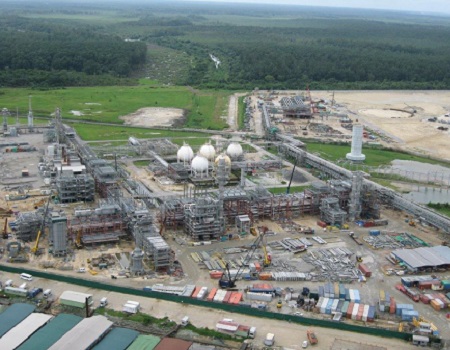Natural gas is the cleanest burning fossil fuel and is abundantly available in Nigeria, which has the largest reserves in Africa and the ninth largest in the world with proven gas reserves of 192trillion standard cubic feet reserve.
ALSO READ: Why I’ll continue to dominate Kwara politics — Saraki
The Federal Government of Nigeria has made it a priority to unlock and harness the potential of this resource to increase domestic and industrial power supply, raise living standards and support sustainable economic growth and diversification.
According to the Oil Producers Trade Section (OPTS) of the Lagos Chamber of Commerce and Industry, Nigeria has around 181 trillion cubic feet (TCF) of proven gas reserves plus much more in undiscovered gas resources. However, despite having the largest gas reserves in Africa, only about 25 per cent of those reserves are being produced or are under development today.
Nigeria currently has around seven gigawatts (GW) of installed electricity capacity but often less than five GW actually in operation. The OPTS states that Nigeria generates the equivalent power of just one 40-watt light bulb per person – one of the lowest power generation levels per person in the world, e.g. in South Africa, the UK and US it is 20, 33 and 80 light bulbs per person, respectively. The Federal Government of Nigeria has an aspiration to increase electricity generation from the current five GW to 40 GW and this represents a huge development opportunity for Nigeria’s domestic gas industry.
However, funding gas projects has been one of the major challenges to gas sector development in Nigeria. There is the need for the settlement of the backlog of unpaid gas deliveries to both power generation companies and other gas customers.
Without the repayment of outstanding gas and power invoice arrears, and securitization of current and future revenues, operators are reluctant to commit additional investments to grow domestic gas supply.
Another challenge deals with the need to attract investment to further develop infrastructure along the gas value chain.
For example, there is need to create a more robust pipeline network to improve reliability and security of supply. The reliability of the existing power transmission also needs improvement. For example, SPDC JV’s Afam VI power plant, which has the capacity to generate up to 650 MW, only generates between 350-450 MW most of the time because the power transmission system is unable to evacuate the full output.
Finally, the government must ensure a conducive business environment which is essential to attracting investments and running reliable operations. This includes a respect for the sanctity of existing contracts, predictable regulatory, commercial and legal framework across the country and overcoming security challenges, particularly in the Niger Delta that has experienced an increased risk to personnel and property as well as the disruption to operations.






